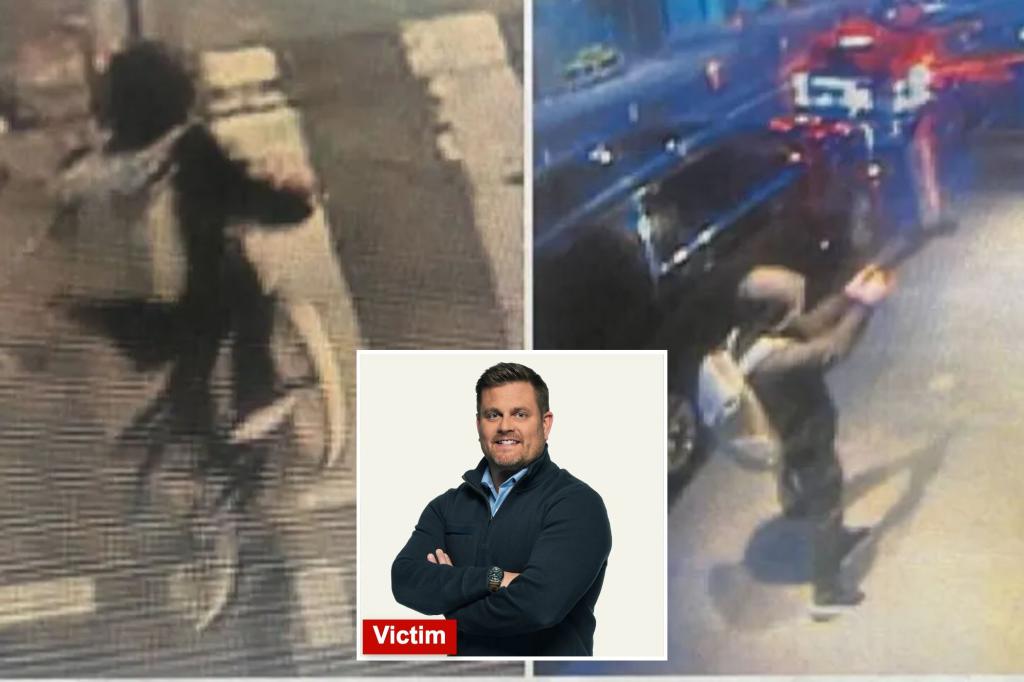Surveillance footage from outside a Midtown hotel has captured the chilling moment a masked gunman shot and killed Brian Thompson, the CEO of UnitedHealthcare, on Wednesday morning. The incident unfolded outside the Hilton Hotel located at 54th Street and 6th Avenue, where the event has drawn significant media attention and raised concerns about safety in urban areas. The stark images released by law enforcement depict the assailant, still unidentified, brandishing a long handgun just before the fatal shots were fired. This shocking crime highlights the tragic realities of gun violence in public spaces and has left the community in disbelief.
As the investigation continues, law enforcement officials are working diligently to identify the suspect and determine motives behind the attack. The police have made appeals for any witnesses to step forward and provide information. Surveillance cameras in the area may offer additional clues, and authorities are meticulously combing through the footage to piece together the events leading to the shooting. Community leaders and residents have expressed their shock and concern, sparking calls for increased security measures in popular neighborhoods and public venues. This incident underscores the urgent need for comprehensive discussions around public safety and the implications of gun violence.
Brian Thompson, just 50 years old, was a prominent figure in the healthcare industry. As the CEO of UnitedHealthcare, he was known for his leadership and commitment to improving healthcare services. His unexpected death has reverberated through both the corporate world and his local community, prompting an outpouring of condolences and tributes. Colleagues and friends remember him not only for his professional accomplishments but also as a compassionate individual dedicated to helping others. The loss of such a key figure has left a significant void, particularly in an industry that is constantly evolving and facing new challenges.
The Hilton Hotel, where the shooting took place, has become a focal point for discussions about security and public safety. Hotels in bustling urban areas often serve as gateways for visitors and locals alike, making them vulnerable to such incidents. In the aftermath of the shooting, hotel management and local officials are exploring ways to enhance security measures, including the potential installation of additional surveillance equipment and the presence of security personnel. These efforts aim to reassure guests and the surrounding community that they are safe while frequenting public spaces.
The broader implications of this tragic event extend beyond the immediate horror of the shooting. It spotlights the ongoing conversation surrounding gun control in the country, as advocates push for stricter laws and measures to prevent such incidents from occurring in the future. As communities grapple with the impacts of gun violence, stories like Thompson’s serve as a stark reminder of the human cost associated with this issue. As the investigation unfolds, there is a collective hope that justice will prevail and that preventive measures can be implemented to avoid similar tragedies.
In conclusion, the shooting of Brian Thompson stands as a somber reflection of the challenges faced by society in regard to public safety and gun violence. The sudden and violent nature of his death raises numerous questions and demands a thorough investigation into the circumstances surrounding the crime. As the community mourns the loss of a respected leader, it also confronts its own vulnerabilities in an increasingly complex and dangerous world. Now, more than ever, it is essential for dialogue and action to prioritize the safety of individuals in public places and take a proactive stance against the root causes of gun violence.

